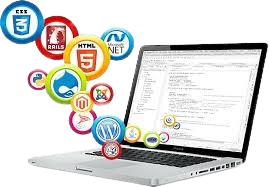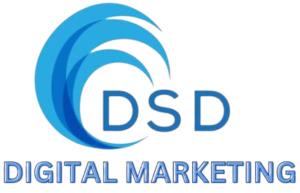Digital Marketing

Digital marketing refers to the promotion of products, services, or brands using online platforms and digital technologies. It encompasses various strategies, including search engine optimization (SEO), social media marketing, email campaigns, and paid advertising. By utilizing channels like websites, social media, search engines, and email, businesses can reach targeted audiences more efficiently. Digital marketing offers measurable results, enabling companies to adjust strategies in real-time and achieve higher engagement and conversion rates compared to traditional marketing methods. It is essential for businesses in today’s digital age to build brand awareness and drive growth.
Digital Marketing Channels
Search Engine Optimization (SEO):
Optimizing website content to rank higher on search engine results pages (SERPs) and increase organic traffic.
Pay-Per-Click (PPC) Advertising:
Paid ads on platforms like Google Ads or social media, where advertisers pay each time a user clicks on their ad.
Content Marketing:
Creating and distributing valuable, relevant content (blogs, videos, infographics) to attract and engage target audiences.
Social Media Marketing:
Using platforms like Facebook, Instagram, Twitter, LinkedIn, and others to connect with users, build brand awareness, and drive traffic.
Email Marketing:
Sending targeted, personalized emails to potential or existing customers to promote products, share news, or build relationships.
Affiliate Marketing:
Partnering with affiliates who promote your products or services and earn a commission for each sale or lead they generate.
Influencer Marketing:
Collaborating with social media influencers or industry experts to promote products to their followers.
Video Marketing:
Using video content, often on platforms like YouTube or social media, to engage audiences and convey information in an interactive format.
Display Advertising:
Banner ads or visual ads that appear on websites, apps, or social media, designed to generate awareness or direct traffic to a site.
Mobile Marketing:
Reaching users through SMS, mobile apps, or mobile-optimized websites to deliver promotional content.
Why Digital Marketing Is Important For Our Business?
Digital marketing is important for businesses because it allows them to reach a wider audience, target specific customer groups, and engage with them more effectively. It’s cost-efficient compared to traditional marketing, and it provides measurable results, enabling businesses to track performance and improve strategies in real-time. Digital marketing helps increase brand visibility, boost customer engagement, and drive higher conversion rates, making it essential for growth and competitiveness in today’s digital landscape.


What Does a Digital Marketer Do?
A digital marketer promotes a company’s products or services through online channels. They create and manage marketing strategies, optimize websites for search engines (SEO), develop engaging content, and run social media and paid advertising campaigns. They also handle email marketing, analyze performance data, and adjust strategies to improve results. Additionally, they manage the brand’s online reputation and ensure a strong, positive digital presence. Their role is crucial in driving traffic, increasing engagement, and boosting sales for a business.
What are the Key Digital Marketing Skills?

Being a digital marketer is an exciting job because it can change so much from day to day. One day you could be creating a social media content schedule to post content across channels and the next you could be setting up an email workflow to re-engage lapsed subscribers.
It’s this level of variety that requires marketers to have a wide range of knowledge and skills. According to new research by the DMI of marketing, HR, L&D and sales leaders, the top skill that businesses lack in their teams is AI at 54%, followed by SEO (44%), and data analytics (42%).
Desirable Skills to Future Proof Your Career

Along with technical skills, soft or professional skills are becoming more important to employers.
A survey from Express Employment Professionals found that 59% of businesses say finding qualified applicants for open positions is one of their greatest difficulties with 33% saying one of the main reasons is that applicants lack soft skills such as communication, problem-solving and adaptability.
These types of skills give you the ability to see beyond the ideas presented and look at the potential opportunities or challenges it might cause. You may also be able to suggest improvements based on instincts and ensure your ideas are feasible.
Here are some of the skills that will help you achieve that.
Supercharge your Digital Marketing Career

There’s no better or faster way to break into the digital industry than with a digital marketing certification. DMI’s certified and industry aligned Professional Diploma in Digital Marketing will teach you the fundamentals of digital marketing, how to leverage AI in your marketing activities and cultivate soft skills. You will also understand email marketing, social media, SEO, content marketing, display and video advertising to develop and execute successful marketing campaigns in any industry.
Get In Touch With Us

